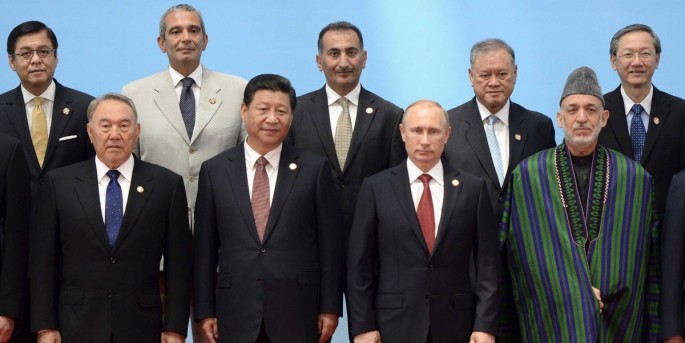Many spectators presume that the strategy of China going after Central Asia is about its integration with Russia.
Over the last year, China and Russia signed highly publicized deals on energy, joint military exercises, and showed support for each other's foreign policy adventures. However, some say a crucial reason was overlooked.
Observers believe that Beijing is looking for new countries to which it can trade its goods, as Western demand decelerated and China transforms into a consumption-based economy.
Robert Skidelsky, a professor emeritus of political economy at Warwick University, said that China's motive for reviving Pax Mongolica is clear.
"[China's] growth model, based largely on exporting cheap manufactured goods to developed countries, is running out of stream. Reorienting investments and exports toward Eurasia offers an alternative," the professor said.
In the Sino-Russian Marriage, Skidelsky wrote that production is being re-located from the coastal regions to the western provinces because of the rise in China's labor costs.
Another write-up on China-Russia agreement noted that what is likely to emerge is a trade and investment zone covering all of central, northern and eastern Eurasia.
"With China as its powerhouse, this area can be called Greater Asia--from Shanghai, its business center, to St. Petersburg, its outpost at Europe's doorstep," noted Dmitri Trenin, the director of Carnegie Moscow Center.
"Putin’s vision of a 'greater Europe' from Lisbon to Vladivostok, made up of the European Union and the Russian-led Eurasian Economic Union, is being replaced by a 'greater Asia' from Shanghai to St. Petersburg," wrote Trenin.
Still, it is critical to note that it is not all smiles in Central Asia.
China's heavy ventures in former Soviet states like Kazakhstan have started to "annoy Russia," while Beijing has grown "frustrated with Russian reticence."



























